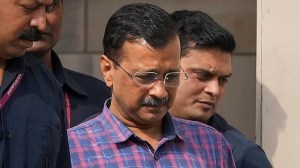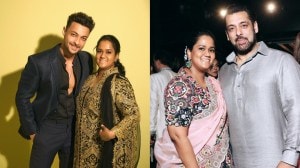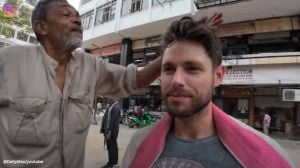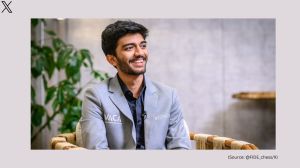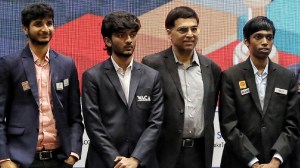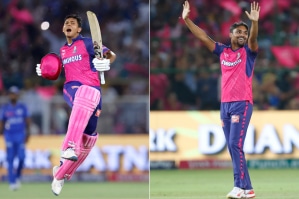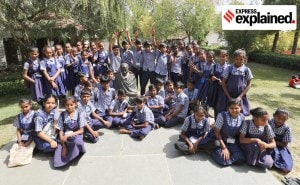- India
- International
Dr Bernard Lown, Nobel Peace Prize winner & inventor of defibrillator, passes away
'We are all feeling orphaned', say Lown scholars who were preparing for centennial celebrations.
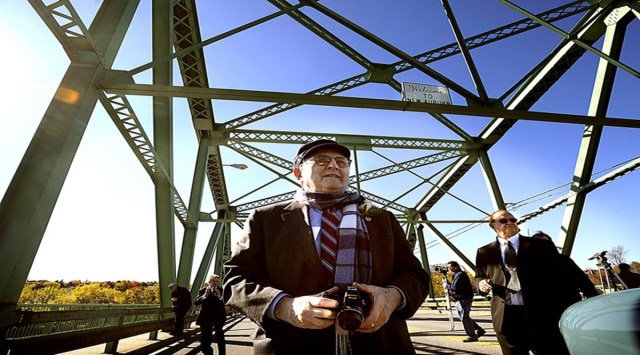 In 1962, Dr Bernard Lown invented the direct-current defibrillator or cardioverter, which uses electric shocks to get hearts to resume beating. (Source: AP)
In 1962, Dr Bernard Lown invented the direct-current defibrillator or cardioverter, which uses electric shocks to get hearts to resume beating. (Source: AP)For Dr K Srinath Reddy, the death of Dr Bernard Lown, winner of the Nobel Peace Prize and Harvard cardiologist who invented the first effective heart defibrillator, is a personal loss. “He was a remarkable man who valued human relations. My last meeting with him was in Boston eight years ago and I still remember that despite the pouring rain, this 91-year-old celebrated doctor made it a point to drive me to my hotel,” said Dr Reddy, president of the Public Health Foundation of India (PHFI) who was personally selected by Dr Lown in 2009 to be the first visiting professor at Harvard.
In 1962, Dr Lown invented the direct-current defibrillator or cardioverter, which uses electric shocks to get hearts to resume beating. He was also one of a group of co-founders of an international organisation that won the 1985 Nobel Peace Prize for its campaign against nuclear wars. He died on Tuesday at his home in Massachusetts.
Dr Lown touched the lives of several researchers and as a Lown scholar, Dr Devaki Nambiar, who was formerly with PHFI, wrote to Dr Reddy. “There is deep outpouring in the Lown Scholars’ group. We knew he was unwell but we are all feeling orphaned today in the strangest of ways. What a person,” she said.
Dr Nambiar wrote to Dr Reddy and said that over 80 of Bernard Lown Scholars from 25 countries around the world were preparing for his centennial celebrations just later this month. “Prof Lown checkmated us and made his departure. He beat us by a week,” said Dr Nambiar.
Dr Lown’s first choice for the professorship at Harvard in cardiovascular health was an Indian doctor. While Dr Reddy agreed to be the first Bernard Lown visiting professor at Harvard School of Public Health, such was the commitment towards preventive cardiology that Dr Lown also set up a fellowship programme. “He was keen that I set up a cardiovascular programme and mentor youngsters,” Dr Reddy recalled.

“In his capacity as a doctor, an inventor, activist, and mentor, millions have hung on to Prof Lown’s every word. His legacy looms large. Prof Lown’s discovery of Lidocaine as treatment for arrythmia and invention of the cardioverter were transformative in the field of modern cardiology. His commitment to the social struggle for health and indeed for society have also set a global example for internationalism, solidarity, and peace,” Lown scholars wrote.
Prof Lown founded Physicians for Social Responsibility at the height of the Cold War in 1960. Two decades on, with Dr Yevgeny Chazov from the Soviet Union, he founded International Physicians for the Prevention of Nuclear War (IPPNW).
Dr Arun Mitra, co-president of IPPNW and the first doctor from Asia to be on this body, told The Indian Express that he had met Dr Lown twice – once in 1988 three years after he recived the Nobel Peace Prize, and then in 2019.
“He was very enthusiastic that he had achieved one goal and said had to move forward… Later, I met him in 2019 in Boston… he was old but his memory was sharp… he was quite upset that the global society did not recognise the dangerous implications of having nuclear weapons,” said Dr Mitra.
A celebrated cardiologist, Dr Lown was sensitive to the patient’s emotional needs and urged junior cardiologists to ensure holistic care and try to look at the emotional state of the patient. He set up Satellife, an educational programme for young cardiologists in developing countries, and often advised them to connect with people and patients.
A Lown scholar, Dr Shifalika Goenka, said it was a monumental loss.
“Dr Lown was extremely broadminded and recognised the importance of nurturing committed people. He invested in researchers in developing countries and encouraged us to develop specific courses for the fellows on prevention of cardiovascular diseases in India,” said Dr Goenka.
– Stay updated with the latest Pune news. Follow Express Pune on Twitter here and on Facebook here. You can also join our Express Pune Telegram channel here.
Click here to join Express Pune WhatsApp channel and get a curated list of our stories
Apr 23: Latest News
- 01
- 02
- 03
- 04
- 05
















